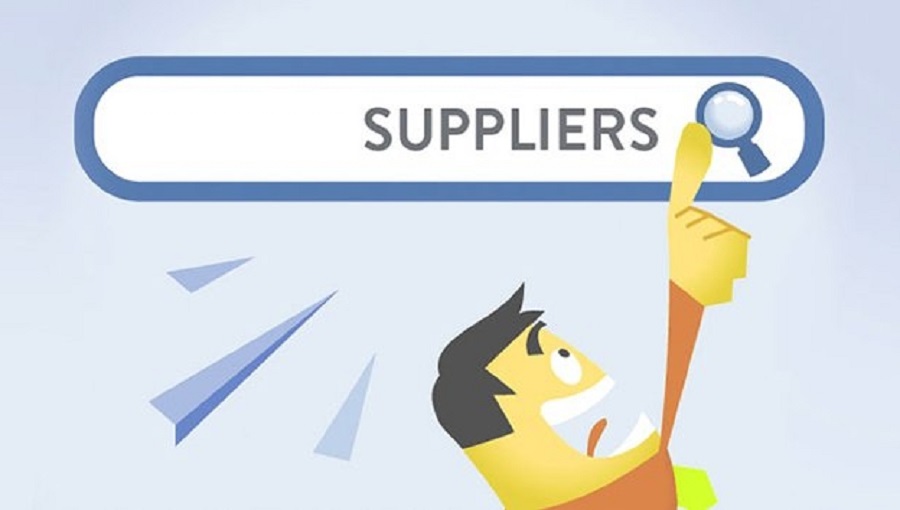Great suppliers are a fundamental part of your business. They allow you to produce and get your products and services to your customers. But finding reliable suppliers for your business takes real effort. It requires much more than just skimming through a series of price lists. Here are 6 things to consider when looking for suppliers for your business.
1. Your Overall Budget
Your overall budget is one of the most important things to put into consideration when you’re searching for the best suppliers for your business. While you may not know the accurate cost of certain things, you need to have a clear idea of the amount of money you’re able and willing to spend before approaching potential suppliers. And one good way to do that is by researching how much some of the products and materials you need will cost you.
Assuming your business offers HVAC installation, maintenance, and repair services. You’ll need to know the prices of various HVAC parts, including air filters, belts, capacitors, fan motor, and coil condenser cleaners. The best way to do that is to visit the site of HVAC suppliers in your area and see how much they sell these parts. This information will help you create a reasonable budget. If you’d like a suggestion, you can take a look at Cold Air Central for quality HVAC parts and other products.
READ: China publicly presents its COVID-19 vaccines, 2 doses to cost below $146
2. Reliability
Reliability is another important factor to consider when picking suppliers. Reliable suppliers provide quality products and materials in a timely manner. It’s always a good idea to work with reputable and well-established suppliers, as they have adequate resources and resilient systems that enable them to deliver without hiccups. But you can still work with small suppliers, especially if you cultivate a meaningful relationship with them.
READ: Port Harcourt Refinery to get a facelift in Q1 2021 – NNPC
3. Stability
When looking for the best suppliers for your business, go for those who are experienced, and have a stellar record of accomplishment. Stability is crucial, particularly if you’re looking for a long-term partnership with a specific supplier or there is only one supplier of a specific product or material that your business requires. You must also ensure the supplier is financially stable before entering any contract with them. A great way to do that is to request the credit history of a potential supplier.
READ: Nigeria’s Manufacturing Sector contracts for 6th consecutive month
Another great way of finding out if a prospective supplier is stable is to check out review websites for testimonials from previous clients. You can also visit their official social media pages to see how they engage their followers and how they address complaints. If there are so many negative reviews and comments from customers, there is a high likelihood that they’re not going to be the best option for you.
READ: Apple drops 4%, iPhone sales slump
4. Location
Consider location when searching for competent suppliers. Working with distant suppliers may sometimes result in longer delivery times and additional freight expenses. But if you want something fast, dealing with local suppliers might be a wise decision. That doesn’t mean you should overlook distant suppliers. Be sure to review freight policies of far-off suppliers. You may discover that bulk orders might attract free shipping. Or better yet, you can merge different orders to lower costs.
READ: FG, Tiimafrica to provide $5,000 one-time grant to young business owners
5. Production Capabilities
Look for suppliers who can produce the items you want. To verify the production capabilities of a potential supplier, you must do more than just speaking to a representative. A good one should consistently supply items that meet your standards. Visiting the supplier is the only sure way to confirm their production capabilities.
An in-person visit will give you a chance to audit the quality management system of the factory. If you don’t know what to check for during the visit or you want to do away with the cost of traveling overseas to the factory, working with a third-party can be a great option.
READ: TikTok in talks to move global headquarters to London over Chinese tussle with US
6. Cultural Fit
Check whether the goals and values of a potential supplier are aligned with yours. If they are, then partnering with that supplier would be a great idea. Some of the things that will help you tell whether a potential supplier is a cultural fit include:
- The type of companies they work with.
- A detailed quote that meets your specific requirements.
- Minimum order quality.
- A deep understanding of your business.
Conclusion
By putting these 6 things into consideration, you’ll tailor your supplier-selection process to your unique business needs. That way, you’ll choose the right supplier who will consistently deliver quality products and materials that your business requires. It could also enable you to cultivate long-term mutually beneficial relationships with your suppliers and reduce stress in selecting partners.
About author
Rachel Eleza, Growth Marketing Director at UpSuite and a part-time writer.











